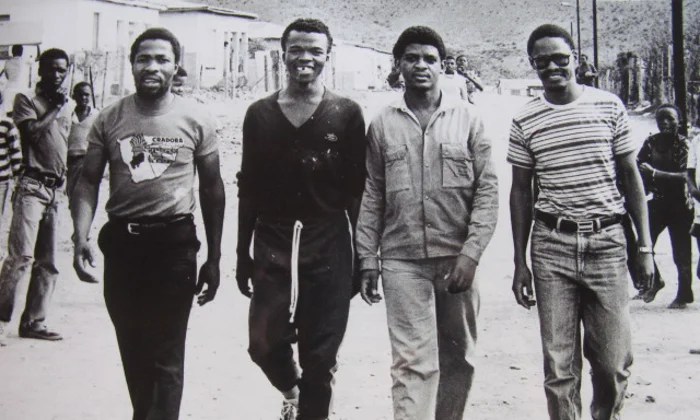National Police Day Declaration: A Bold Reform Move

In-depth Commentary: National Police Day Declaration
National Police Day Declaration: Symbol of Recognition
The National Police Day Declaration by President Bola Tinubu is a landmark event in Nigeria’s security and governance history. For the first time, a sitting president has set aside a special day to honor the Nigeria Police Force and recognize their contributions to national security. The declaration not only boosts morale but also lays the foundation for deeper engagement with reform and modernization of the police system.
The National Police Day Declaration signals a fresh tone from the highest level of government. April 7 is now designated to reflect on the sacrifices made by men and women in uniform and to acknowledge their indispensable role in maintaining law and order.
Context Behind the National Police Day Declaration
President Bola Tinubu made the National Police Day Declaration during an official event involving the Nigeria Police Force. He emphasized the need to uplift the force’s profile and morale while pushing forward much-needed reforms. This declaration reflects the administration’s commitment to improving security infrastructure and investing in human capital within law enforcement.
The significance of this declaration lies not just in its symbolism but also in its timing. Nigeria faces various security threats—from terrorism and banditry to kidnapping and organized crime. The National Police Day Declaration is a strategic tool to rally support for the force and build public trust.
Bridging the Gap Between Police and Citizens
The National Police Day Declaration helps bridge the gap between the police and the communities they serve. By formally recognizing police contributions, the government encourages Nigerians to reframe their often negative perception of the force. For decades, the Nigeria Police Force has struggled with image problems, frequently accused of misconduct, corruption, and inefficiency.
This declaration is part of a broader push for police reform in Nigeria, which has gained momentum over recent years, particularly after the #EndSARS movement. The government, through initiatives like the National Police Day Declaration, aims to foster a people-centered police system built on accountability and service.
A Boost for Police Welfare and Morale
With the National Police Day Declaration, attention now turns to officers’ working conditions and welfare. Historically, many Nigerian police personnel operate under challenging circumstances—low salaries, limited training, and poor equipment. President Bola Tinubu has acknowledged these issues and promised better funding, improved facilities, and comprehensive retraining programs.
Celebrating National Police Day is a morale booster and a reminder that real support must be structural and consistent. Police officers, especially front-line ones, must see changes in their daily lives. This includes timely salaries, housing, insurance, and medical care.
As the National Police Day Declaration gains traction, stakeholders will expect the government to walk the talk. The symbolic honor must align with tangible policy reforms and investment.
Honoring Fallen Officers and Families
One of the most emotional aspects of the National Police Day Declaration is its spotlight on fallen officers. These men and women gave their lives in the line of duty, yet often go unrecognized. This national day provides an opportunity to honor them publicly and extend support to their families.
Tinubu’s declaration includes provisions for posthumous recognition and welfare packages for families left behind. If consistently implemented, this gesture would show that Nigeria values the ultimate sacrifices its law enforcement officers made. The National Police Day Declaration will now serve as a remembrance, honor, and support day.
National Police Day and the Push for Police Reform in Nigeria
The National Police Day Declaration cannot be separated from broader discussions on police reform in Nigeria. The force has long suffered from institutional weakness, low public trust, and poor human rights records. Declaring a national day is a step toward addressing these challenges, but legislative, administrative, and financial reforms must back it.
President Tinubu wants to restructure the police into a more efficient, modern, and community-oriented force. Some of the proposed reforms include:
- Decentralization and state policing.
- Technological upgrades in surveillance and response.
- Improved training on human rights and community policing.
- Clearer accountability mechanisms.
The National Police Day Declaration provides a platform to showcase progress in these areas and commit to future goals.
Public Reaction and Expectations
The National Police Day Declaration has received mixed but mostly positive reactions from Nigerians. Many see it as long overdue, especially given the police’s role in a country with significant internal security challenges. Others remain cautious, calling for concrete follow-through.
Citizens want to see genuine change. They expect a police system that respects their rights, responds promptly to crime, and operates transparently. With the National Police Day Declaration, the government has opened the door for dialogue and cooperation between the police and the communities they serve.
Comparing Global Practices
Many countries worldwide celebrate their police forces with national holidays or special days. The United States celebrates National Police Week, and India commemorates Police Commemoration Day. These observances serve as moments to recognize law enforcement and reflect on policy direction.
With the National Police Day Declaration, Nigeria joins this global practice. However, the declaration must evolve beyond ceremony. If implemented well, it could position Nigeria as a regional model for recognizing and reforming policing systems in Africa.
Moving Forward: The Need for Political Will
The National Police Day Declaration is a commendable step. Yet, without strong political will and a clear roadmap, it risks becoming just another ceremonial gesture. It must be part of a broader national security strategy prioritizing professionalism, community engagement, and justice.
President Tinubu’s administration must work with stakeholders—civil society, lawmakers, the judiciary, and international partners—to sustain the momentum. By institutionalizing the National Police Day Declaration, Nigeria can foster a policing culture of integrity, transparency, and public service.
Conclusion
The National Police Day Declaration, as proclaimed by President Bola Tinubu, marks a turning point in Nigeria’s policing history. It signals national recognition, honors sacrifices, and lays the groundwork for deep reforms. As the country grapples with insecurity and strained trust in institutions, this declaration offers hope for renewal. But the real test lies in action—translating symbolic recognition into real change. Only then will the National Police Day Declaration fulfill its promise of rebuilding trust, restoring dignity, and enhancing public safety in Nigeria.



